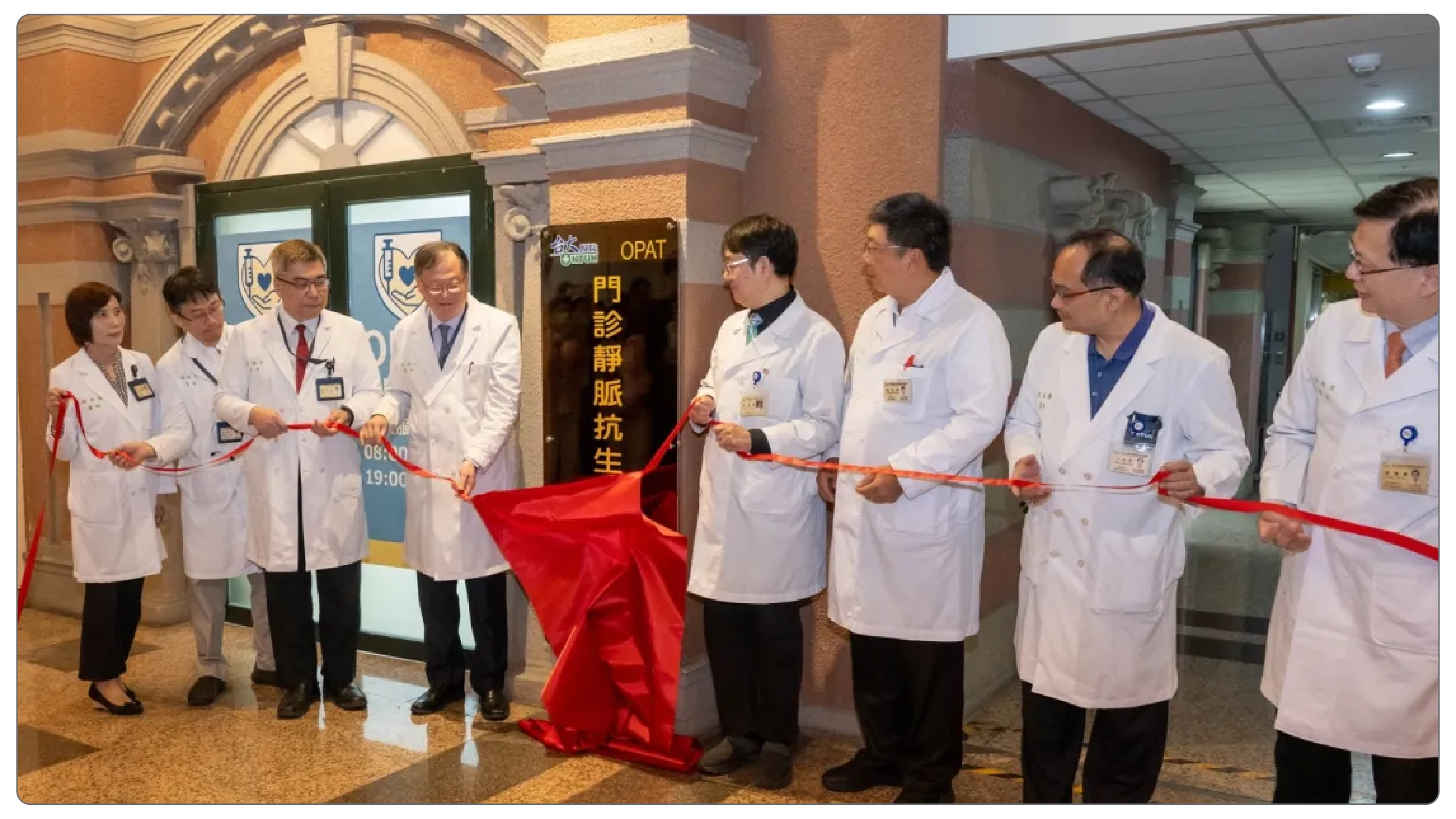NTUH Unveils Cutting-Edge OPAT Center, Redefining Modern Antibiotic Care
With the opening of its new Outpatient Parenteral Antimicrobial Therapy (OPAT) Center, National Taiwan University Hospital (NTUH) has made significant progress in managing infectious diseases. This specialized unit represents a move toward more effective, patient-friendly care by enabling patients who need intravenous antibiotics to receive treatment without having to remain in the hospital. In addition to reducing hospital bed pressure, the OPAT model allows patients to recuperate in the convenience of their own homes while still receiving clinical supervision.

A highly coordinated multidisciplinary team leads this initiative. To create a smooth treatment pathway, NTUH has brought together specialists from emergency medicine, general internal medicine, family medicine, pharmacy, infectious diseases, a nursing. From initial assessment to therapy supervision, this methodical approach guarantees that each patient receives individualized care, reducing complications and facilitating a quicker, safer recovery. According to the hospital, this integrated setup is crucial for encouraging responsible antibiotic use and preserving treatment continuity.
NRUH is utilizing digital health technologies through its fully functional Telehealth Center to further improve accessibility. Patients do not need to frequently visit the hospital to receive remote consultations, follow-ups, and therapy evaluations. This telemedicine assistance greatly minimizes travel, improves convenience, and enables medical professionals to closely monitor patient progress. NTHU is developing a hybrid model that enhances patient engagement and ensures clinical accuracy by integrating in-person treatment with virtual care.
The opening of the OPAT Centers coincides with a national initiative to increase the availability of outpatient antibodies. Hospitals are encouraged to use this advanced care model by Taiwan's National Health Insurance Administration, which recently released specific reimbursement guidelines for outpatient intravenous antibiotic therapy. NTUH's prompt action demonstrates its dedication to public health reforms and establishes the organization as a model for how policy-supported innovation can transform the provision of patient care.
In addition to efficiency and convenience, NTUH highlights the center's critical role in antimicrobial stewardship. The OPAT Center supports international efforts to counteract growing antimicrobial resistance by reducing hospital admissions and ensuring that prolonged antibiotic use is appropriately monitored. With the program, NTUH hopes to enhance patient outcomes, preserve the efficacy of antibiotics, and establish a new benchmark for infection care across Taiwan's medical system.